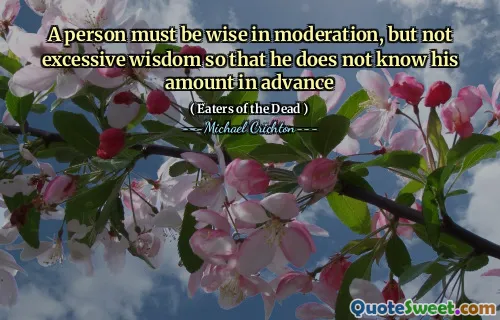
A sixth sense cannot make up for a total lack of common sense.
This quote underscores the fundamental importance of foundational judgment and practical wisdom over special abilities or intuition. Often, society tends to exalt talent, intuition, or extraordinary senses as markers of capability. However, without the basic ability to reason logically and make sensible decisions, even the most refined intuition can mislead us. For instance, someone might possess an intuitive 'sixth sense' about certain situations, yet if they lack the fundamental understanding of right and wrong, or the ability to evaluate situations practically, their judgment can easily lead to missteps. It reminds us that intuition or special senses are supplementary tools; they cannot substitute for the essential skill of common sense, which is rooted in experience, observation, and sound judgment. In daily life, moments where people rely solely on intuition without applying common sense often result in mistakes, poor decisions, or even dangerous outcomes. Recognizing the limits of our senses and abilities is crucial. Genuine wisdom involves knowing when to trust our instincts and when to lean on our basic reasoning skills. This quote also hints at humility — understanding that no matter how refined our perceptions or senses might be, they are incomplete without the guidance of pragmatic judgment. Cultivating common sense is a continuous process, grounded in experience and reflection, which ensures that extraordinary perceptions serve us rather than lead us astray.






